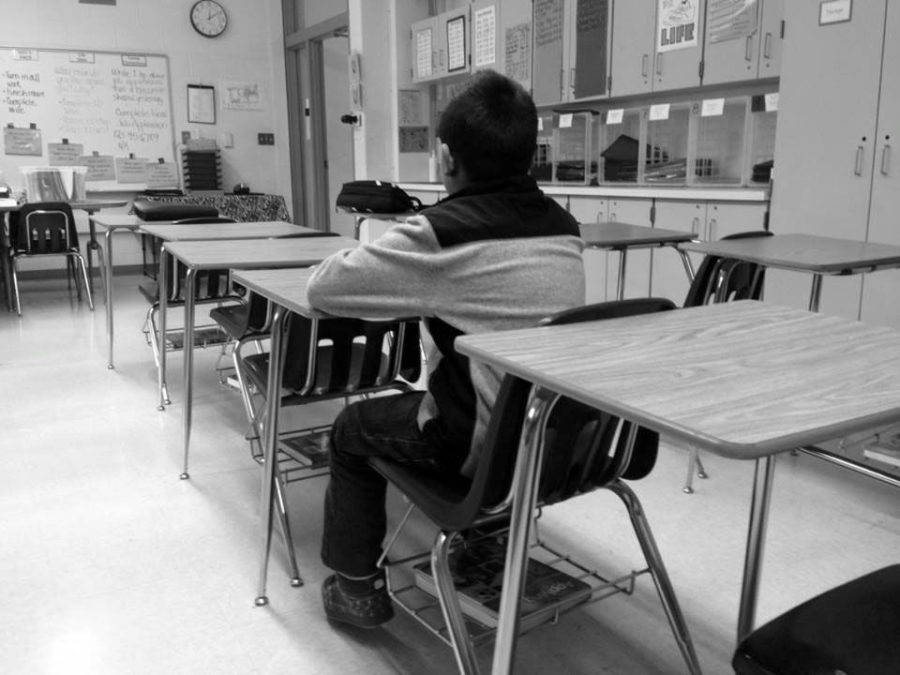C-U Immigration Forum and La Casa Latina seek representation for migrant children
April 23, 2015
An 11-year-old boy was left to fend for himself and find his own way when the man who was hired as his guide abandoned him last year. He slept in a box to keep away from wild animals and managed to find the Rio Grande the following morning, where he was taken into custody by American Border Control.
The young boy made the 2,000 kilometer journey from Guatemala in hopes of seeing his estranged mother after six years.
Lucia Maldonado told this boy’s story, at a screening of the documentary “Which Way Home” at the University YMCA on April 15. The screening was hosted by the Champaign-Urbana Immigration Forum and La Casa Latina.
After the screening a panel discussion was held, featuring Maldonado, who works as a Latino-parent liaison for Urbana School District 116; Rebekah Niblock, an attorney for the Immigration Project; and Gilberto Rosas, an anthropology professor.
The children featured in the documentary migrated to the Champaign-Urbana area from economically unstable homes in El Salvador, Guatemala and Honduras. The instability can result in violence, causing parents to send their children to the United States hoping they will begin working and send money home to their families, Maldonado said.
Get The Daily Illini in your inbox!
Many of the children in Champaign-Urbana are going through legal proceedings that may lead to deportation, because the children do not have proper travel documents and crossed the border illegally, Niblock said.
“They do need a lot of support and they don’t have any representation,” Maldonado said. “All of the students that we have in Urbana so far have been to their first appointment, and they were told that they do need to show up with representation or they will be placed in deportation proceedings.”
Rosas said the steep rise in minors migrating to the U.S. illegally is tied to U.S. involvement in the fall of infrastructure in Central American nations.
“It must be recognized that the United States has continued support of drug wars, of dictatorships in the 1980s, of the coup in Honduras in 2009, of the Central American Mutual Security Initiative,” Rosas said. “(The United States has) played a major role in generating migrations.”
Rosas said students need to raise awareness about the situation and publicly put pressure on Congress representatives to help.
“There has to be a local effort to help these children feel at home such as the Immigration Forum of U-C,” Rosas said.
Alli Gattari, senior in LAS, and her classmates in her Spanish and Entrepreneurship class, Emily Melavic, Patrick Revesz and Kathleen Kolumban, helped with the organization of the event and began fundraising for the children by selling puppy chow.
“We have to think about how crazy it is for a parent to send their thirteen-year-old alone,” Gattari said. “That is just a life or death situation.”
During the panel discussion, Niblock said unaccompanied minors often approach officials for help when they are crossing the border, and many are being detained throughout Texas.
“Unaccompanied minors, they come here all the time,” Niblock said. “They actually approach border control officials and ask for help because many of them are thirsty; they haven’t had food in many days.”
Rosas said a local effort is needed to help children feel at home, such as the Immigration Forum.
More than 28,000 children crossed the border alone in the 2014 fiscal year. The number of children who have attempted to leave their native country is even higher, according to U.S. Customs and Border Protection. These children may die on the journey, some get caught and some actually make it across the Rio Grande.
“If I can stay here, I’m going to work very hard and fight to have, and be, something good in life. I want to study more. I like my school,” one minor living in the Champaign-Urbana area said. “It is my favorite place because there are people here who care about me. My teachers ask me how I am doing and help me if I need help. I eat breakfast and lunch here. I don’t think I would have anything to eat if I didn’t come to school.”







